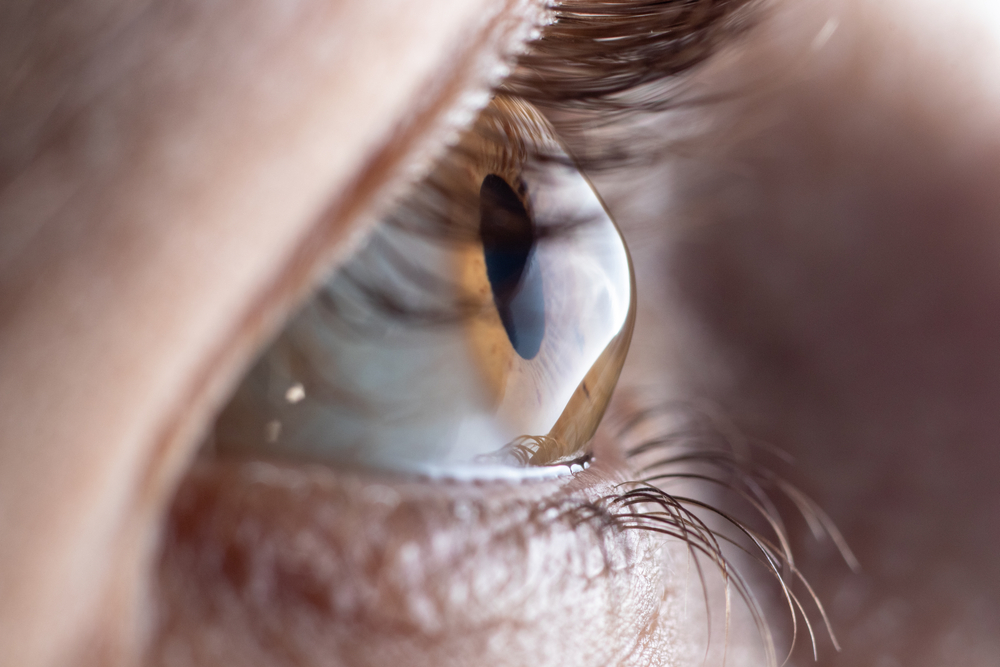
Keratoconus is a progressive eye disease that distorts the cornea. Instead of the normal, dome-like shape, the cornea becomes thin and cone-shaped. This abnormal shape prevents the light entering the eye from being focused correctly onto the retina, leading to distorted vision. Living with keratoconus can be challenging, but fortunately, advancements in eye care technology have led to innovative treatments that can help manage this condition.
Causes and Symptoms of Keratoconus
While the exact cause of keratoconus is unknown, research suggests it's likely due to a combination of genetic and environmental factors. One theory is that keratoconus may occur when the collagen fibers that hold the cornea in place become weak, causing the cornea to bulge out.
The symptoms of keratoconus can vary, but they generally begin to appear in the late teens or early twenties. The first sign is usually a slight blurring of vision that can't be corrected with glasses. As the condition worsens, vision may become increasingly distorted. You may notice that straight lines look wavy, a symptom known as irregular astigmatism.
In addition to blurred and distorted vision, other common symptoms of keratoconus include increased sensitivity to light and glare, difficulty with night vision, and a constant need to change eyeglass prescriptions. It's important to have regular eye check-ups, as early detection and treatment can slow or stop the progression of keratoconus.
What are Scleral Lenses?
Scleral lenses are a type of contact lens designed to vault over the cornea and rest on the white part of the eye, known as the sclera. They are larger in diameter than regular contact lenses, and their design allows them to create a tear-filled vault over the cornea. This makes them an excellent option for people with irregular corneas, such as those with keratoconus.
Unlike traditional contact lenses, scleral lenses don't touch the cornea. Instead, they sit on the sclera and create a fluid layer between the lens and the cornea. This design reduces the risk of corneal abrasions and provides comfort, making scleral lenses a popular choice for those with sensitive or dry eyes.
Scleral lenses offer a number of benefits over traditional lenses, including superior vision correction, greater comfort, and improved eye health. They are custom-made for each individual patient, ensuring a perfect fit and optimal vision correction.
Benefits of Using Scleral Lenses for Keratoconus
By providing a smooth refractive surface, scleral lenses can significantly improve vision, helping to correct the blurring and distortion caused by the cone-shaped cornea.
Lastly, scleral lenses can provide comfort. Because they don't sit directly on the cornea, they can be worn for longer periods without discomfort. And because they're custom-fitted, they're less likely to cause irritation or other issues associated with poorly fitting lenses.
How to Get Fitted for Scleral Lenses
Getting fitted for scleral lenses typically involves a two-step process. The first step is an examination and measurement of your eye. This may involve the use of a corneal topographer, a device that creates a detailed map of the surface of your cornea. The map is then used to design a lens that perfectly fits your eye.
The second step is the actual fitting of the lenses. This involves placing the lenses on your eyes and evaluating their fit and your vision. Adjustments may be made to the lens design as needed. Once the perfect fit is achieved, you'll be taught how to insert, remove, and care for your scleral lenses.
Are Scleral Lenses the Right Solution for Your Keratoconus?
Living with keratoconus can be challenging, but with the right treatment, you can manage your symptoms and maintain your vision. Scleral lenses may be that right treatment, providing the vision correction and comfort you need to live a full and active life.
If you're considering scleral lenses, schedule an eye exam with our optometrist at Evolutionary Eye Care in our Webster, Texas, office. We will provide an in-depth evaluation of your condition and help determine if scleral lenses are a good fit for you. Call (281) 545-4901 to book an appointment today.









